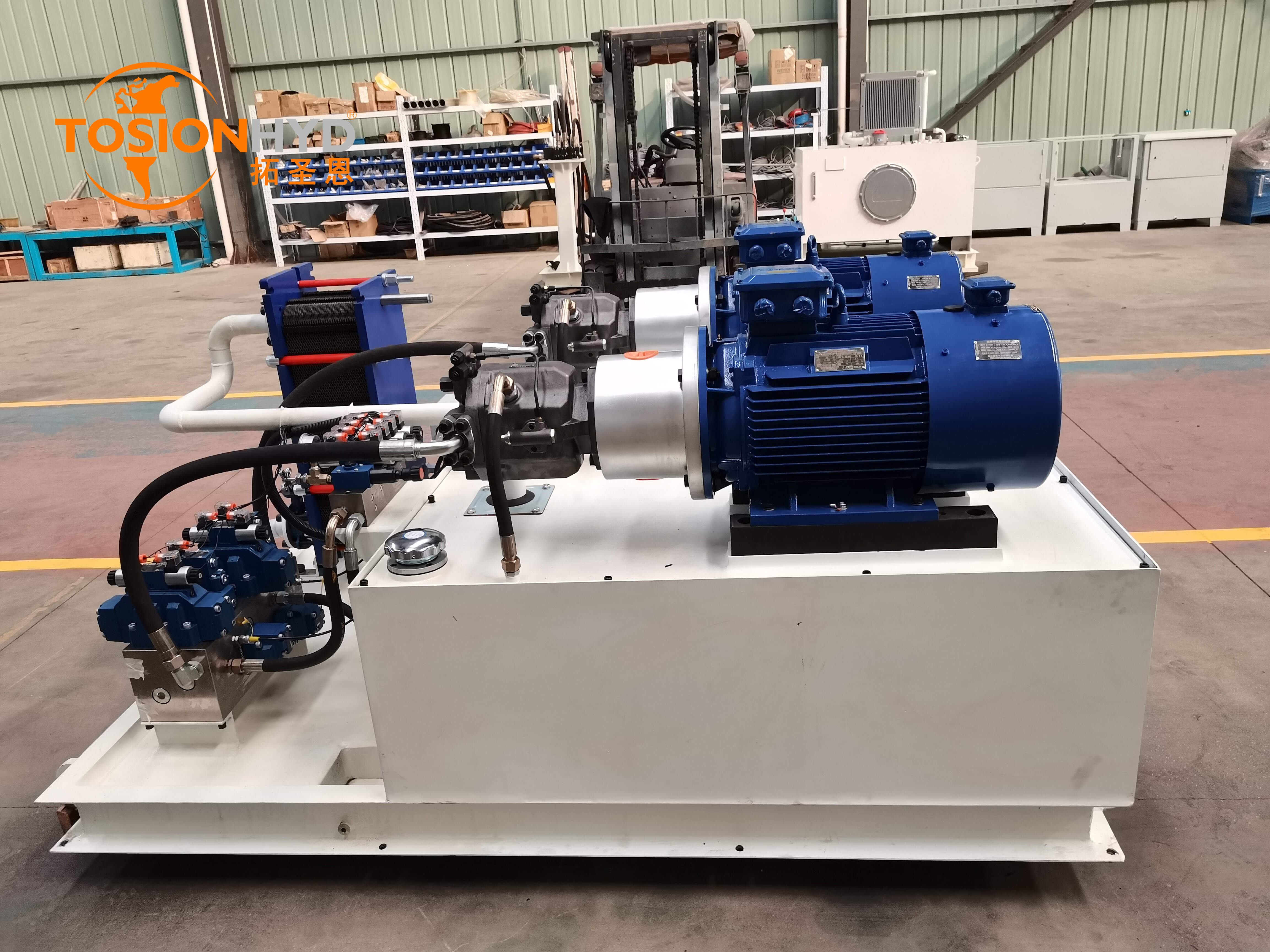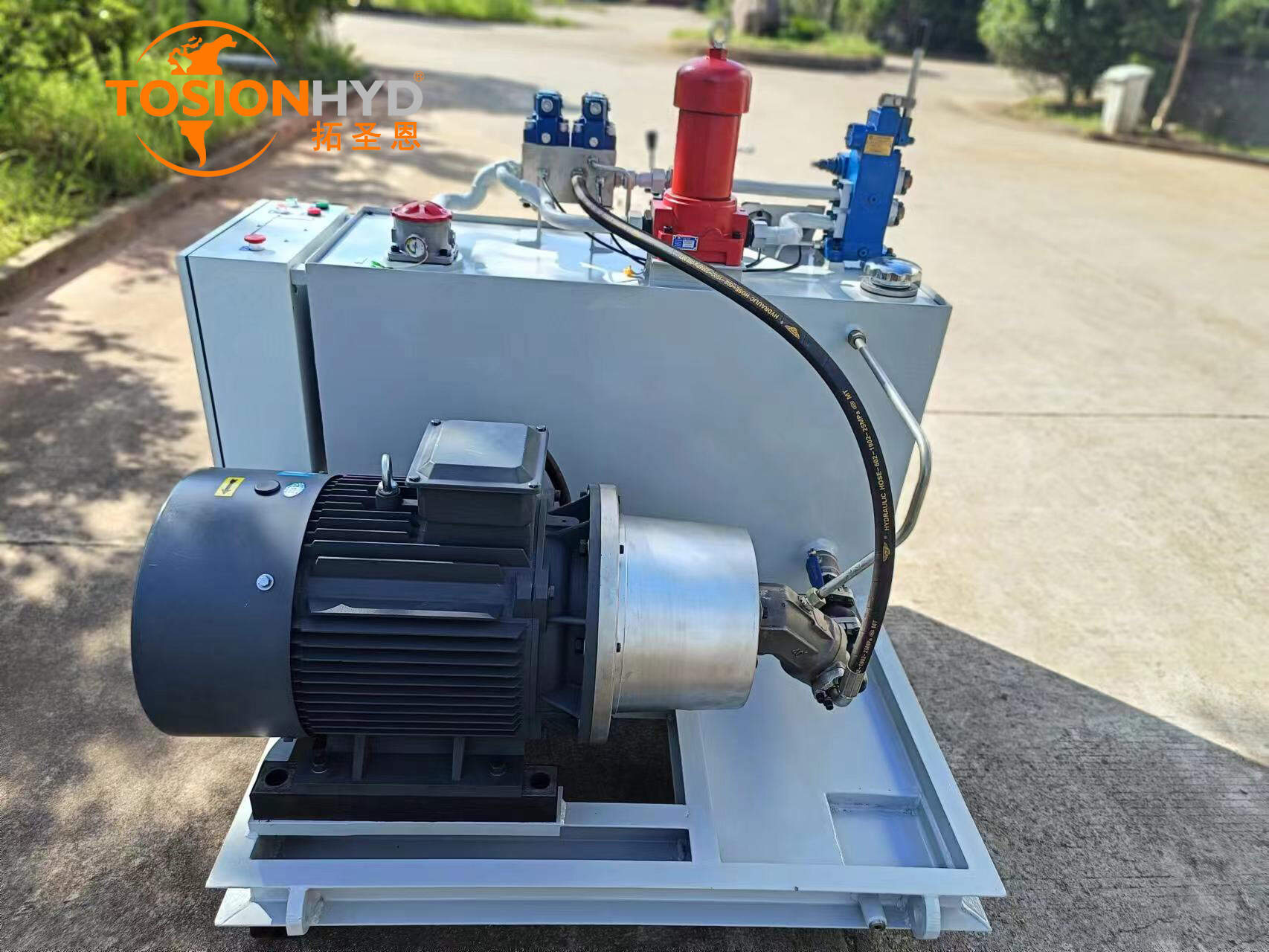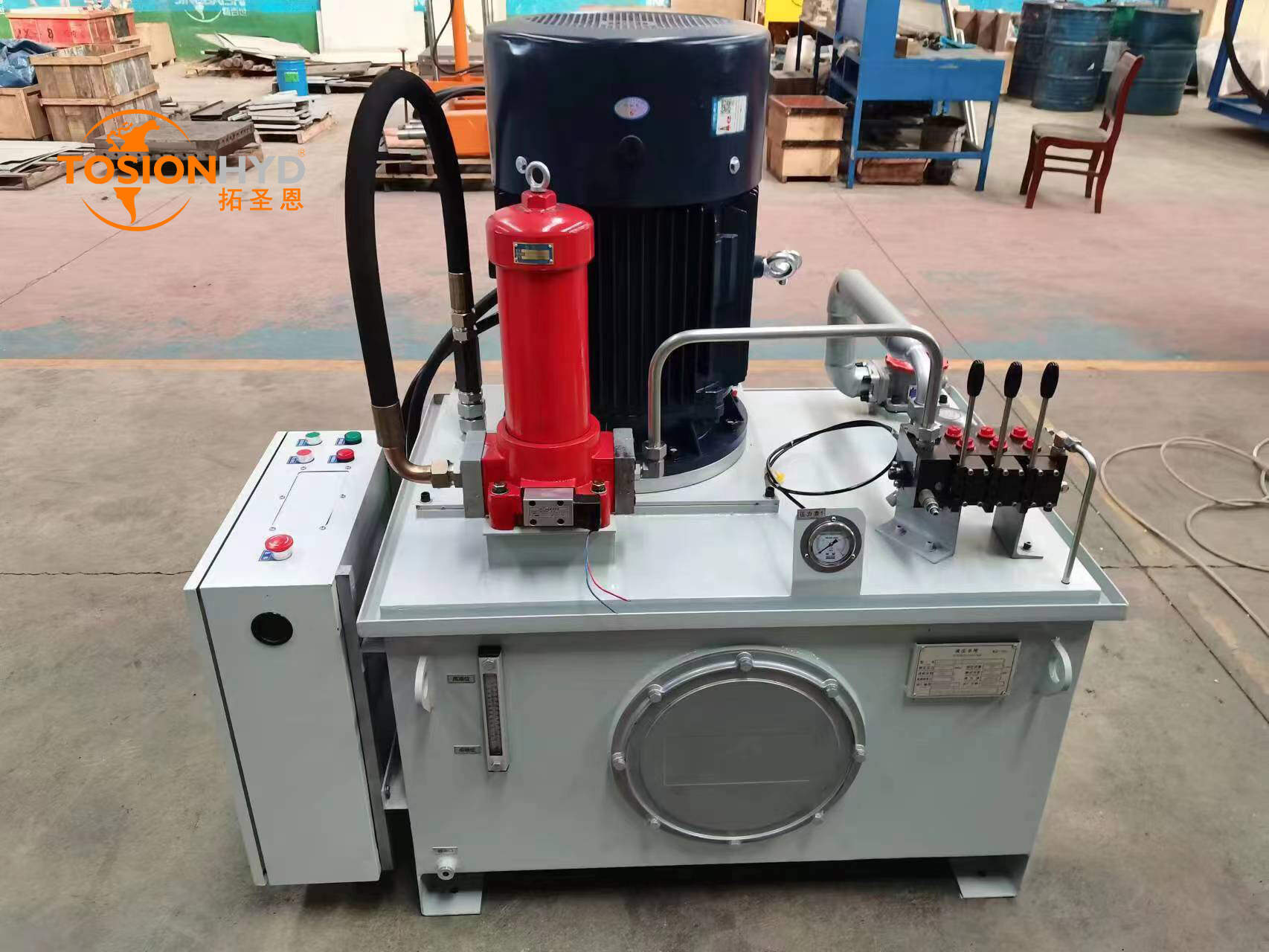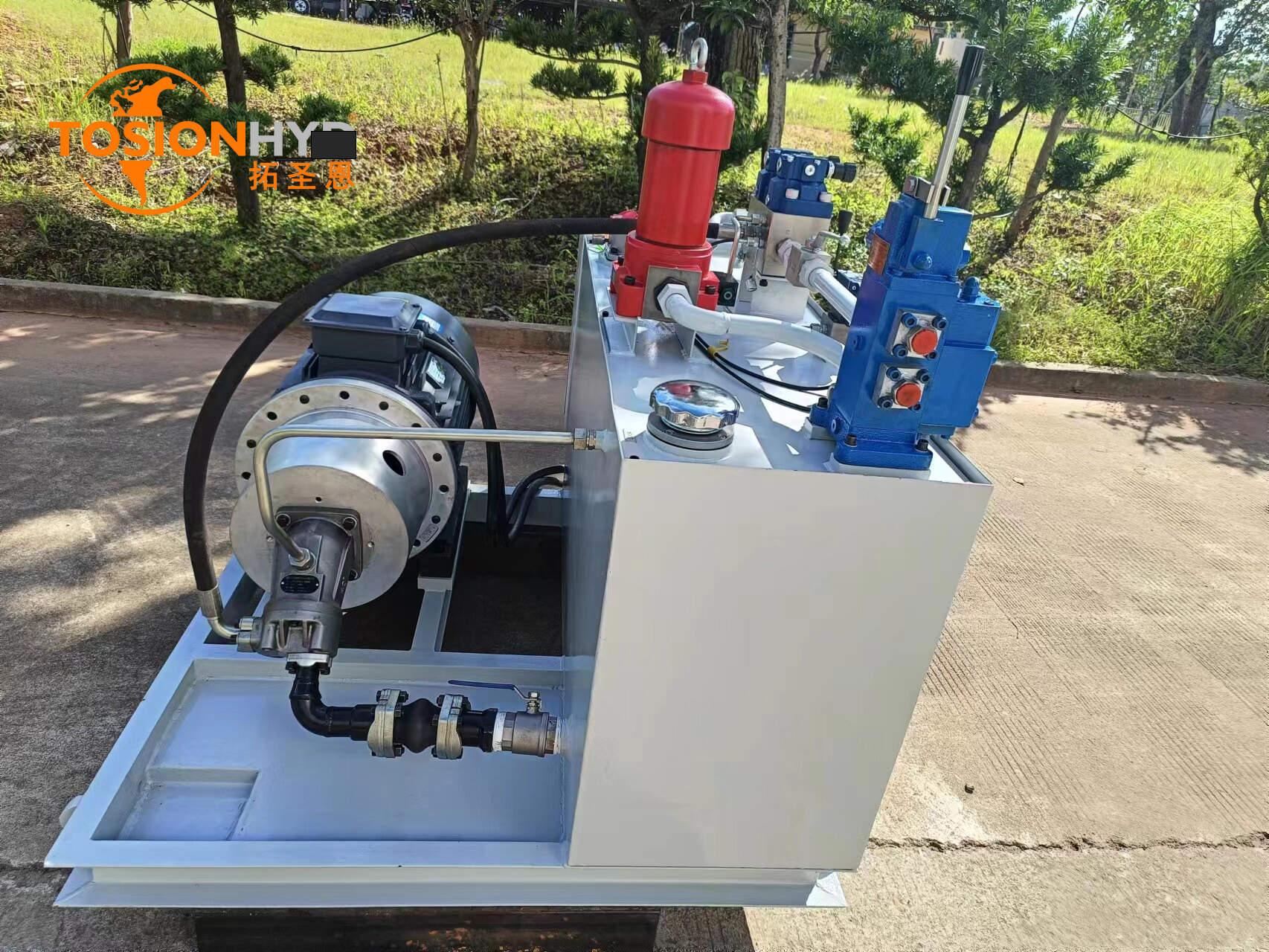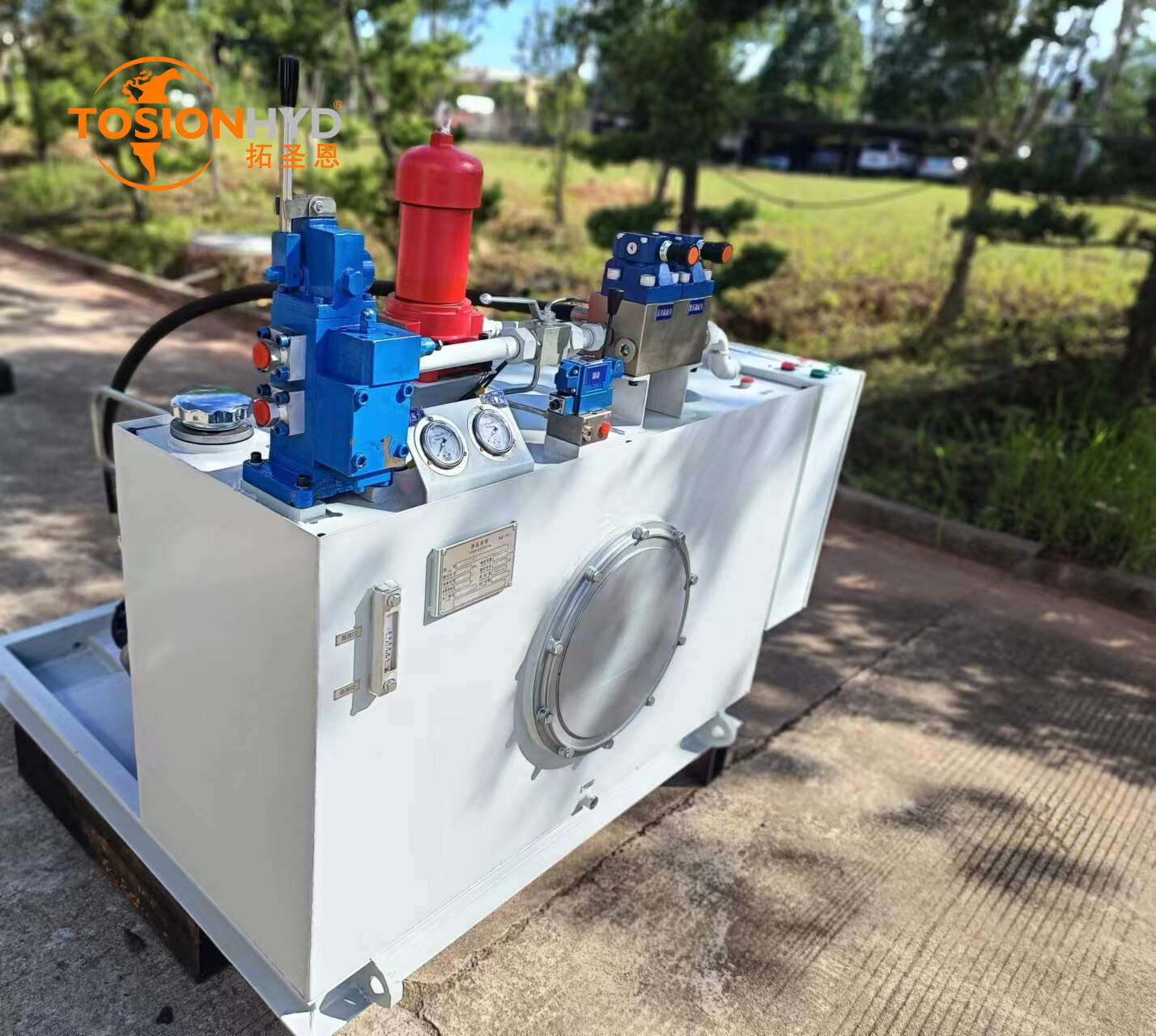Email format error
Email cannot be empty
Email already exists
6-20 characters(letters plus numbers only)
The password is inconsistent
Email format error
Email cannot be empty
Email does not exist
6-20 characters(letters plus numbers only)
The password is inconsistent

CUSTOMIZED SHIP HYDRAULIC STATION FOR DECKBOARD MACHINE DIESEL ENGINE
Key Technical Specifications
|
Power (kW) |
Pressure (MPa) |
Flow Rate (L/min) |
Cooling Method |
Tank Capacity (L) |
Control Voltage (V) |
|
11–500 |
0–35 |
100–1000 |
Water-cooled / Air-cooled |
100–5000 |
24V / 220V |
Major Component Brands:
|
Motor |
Siemens / ABB / High-quality domestic brands |
|
Hydraulic Pump |
Rexroth / Danfoss / Parker / High-quality domestic brands |
|
Hydraulic Valves |
Rexroth / Danfoss / Parker / High-quality domestic brands |
|
Cooling System |
High-quality domestic brands |
|
Filters & Accessories |
HYDAC / LIMING |
|
Electrical Control |
Siemens / Schneider |
Customer Background and Application Scenarios
This solution is tailored for various marine deck machinery systems, including windlasses, mooring winches, hatch covers, and specialized equipment on working vessels (e.g., submarine cable handling systems). These applications demand high reliability, strong corrosion resistance, and adaptability to limited space. Additionally, they often operate under constraints of limited onboard electrical power.
Technical Reasons for Choosing a Hydraulic Drive System
Marine equipment is often exposed to harsh ocean environments characterized by high salinity, humidity, and large temperature fluctuations, leading to severe corrosion of electrical systems and high maintenance costs. In contrast, hydraulic systems, with their strong sealing performance, high transmission efficiency, and rapid response, have become a widely adopted solution.
Hydraulic technology offers distinct advantages, particularly in the following scenarios:
Long-Distance Power Transmission: Hydraulic power can be efficiently transmitted over tens of meters via piping, which is ideal for layouts where actuators are located far from the power source.
High Power Density: Hydraulic systems can deliver significantly more power than electric drives of similar size, which is crucial for applications with limited onboard space.
Adaptability to Harsh Environments: Hydraulic actuators (motors and cylinders) can be specially treated for corrosion resistance, making them suitable for exposure to seawater, moisture, and high-pressure conditions.
Flexible Energy Source: The system can be powered by diesel engines, making it independent from the vessel's main electrical system. This is especially valuable for vessels with limited electric power availability.


